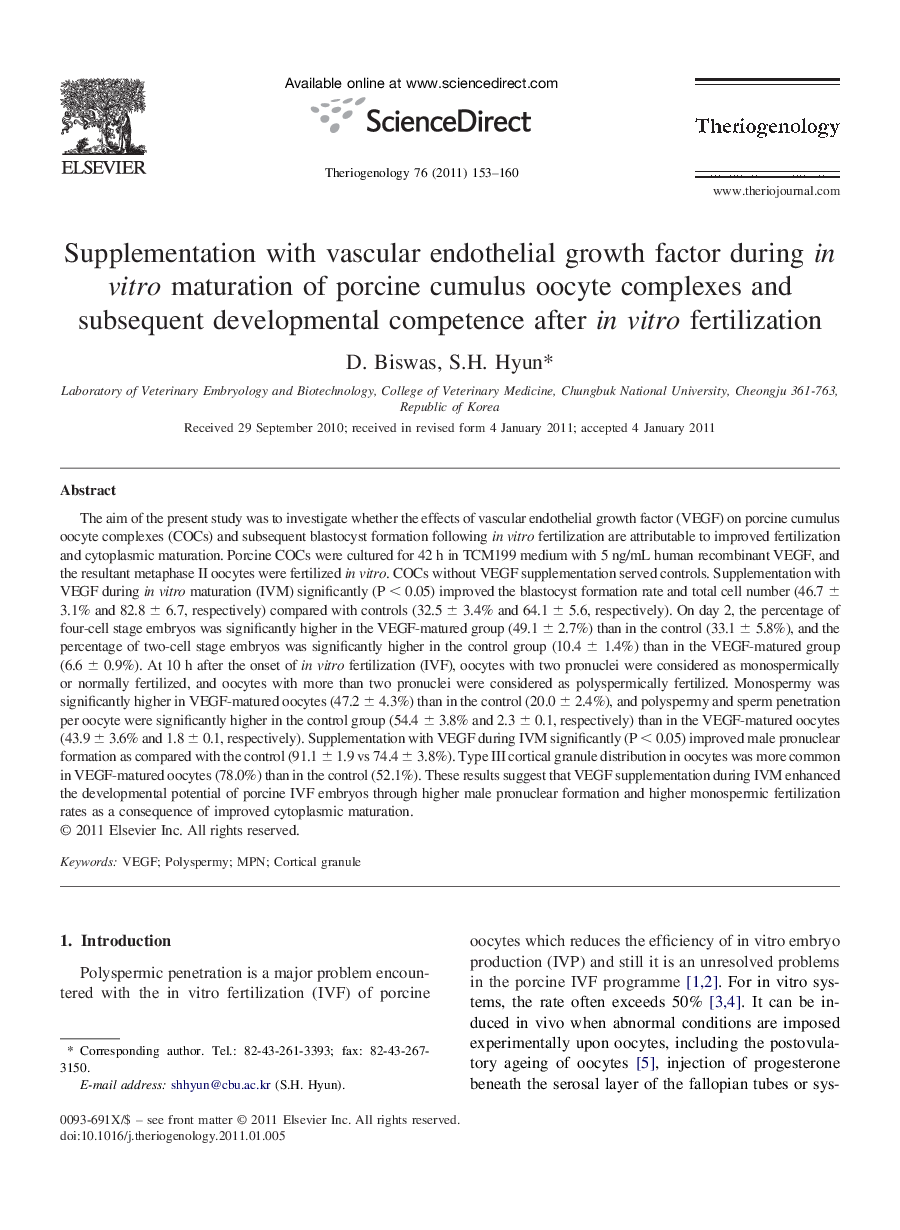| Article ID | Journal | Published Year | Pages | File Type |
|---|---|---|---|---|
| 2095559 | Theriogenology | 2011 | 8 Pages |
The aim of the present study was to investigate whether the effects of vascular endothelial growth factor (VEGF) on porcine cumulus oocyte complexes (COCs) and subsequent blastocyst formation following in vitro fertilization are attributable to improved fertilization and cytoplasmic maturation. Porcine COCs were cultured for 42 h in TCM199 medium with 5 ng/mL human recombinant VEGF, and the resultant metaphase II oocytes were fertilized in vitro. COCs without VEGF supplementation served controls. Supplementation with VEGF during in vitro maturation (IVM) significantly (P < 0.05) improved the blastocyst formation rate and total cell number (46.7 ± 3.1% and 82.8 ± 6.7, respectively) compared with controls (32.5 ± 3.4% and 64.1 ± 5.6, respectively). On day 2, the percentage of four-cell stage embryos was significantly higher in the VEGF-matured group (49.1 ± 2.7%) than in the control (33.1 ± 5.8%), and the percentage of two-cell stage embryos was significantly higher in the control group (10.4 ± 1.4%) than in the VEGF-matured group (6.6 ± 0.9%). At 10 h after the onset of in vitro fertilization (IVF), oocytes with two pronuclei were considered as monospermically or normally fertilized, and oocytes with more than two pronuclei were considered as polyspermically fertilized. Monospermy was significantly higher in VEGF-matured oocytes (47.2 ± 4.3%) than in the control (20.0 ± 2.4%), and polyspermy and sperm penetration per oocyte were significantly higher in the control group (54.4 ± 3.8% and 2.3 ± 0.1, respectively) than in the VEGF-matured oocytes (43.9 ± 3.6% and 1.8 ± 0.1, respectively). Supplementation with VEGF during IVM significantly (P < 0.05) improved male pronuclear formation as compared with the control (91.1 ± 1.9 vs 74.4 ± 3.8%). Type III cortical granule distribution in oocytes was more common in VEGF-matured oocytes (78.0%) than in the control (52.1%). These results suggest that VEGF supplementation during IVM enhanced the developmental potential of porcine IVF embryos through higher male pronuclear formation and higher monospermic fertilization rates as a consequence of improved cytoplasmic maturation.
